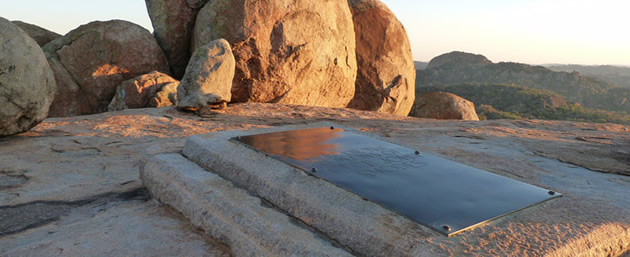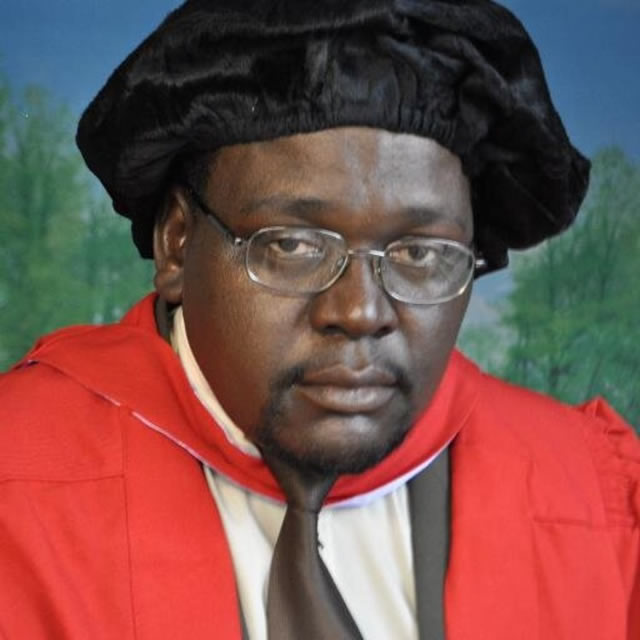Easter time: Memories of Njelele, Mabweadziva


Njelele, Matonjeni or Mabweadziva, is the religious name for Matopo Hills. It was the spiritual shrine of Murenga, which is where the name Chimurenga or liberation war, comes from, ironically, it is here that Cecil John Rhodes is buried
Dr Sekai Nzenza on Wednesday
Whenever Easter time arrives, I feel guilty. I think of the sins I have committed over the years. I desperately want to be free and happy. As Easter time draws nearer, I feel no nearer to God than I did four years ago when I first mentioned in this column that I was looking for a church so that I can also
wear a uniform and belong to a group of prayerful upright people.
“If you come with me to worship the Ancestors at Matopos, you will not feel guilty of sin at Easter time,” said my cousin Reuben, the one who is back here after living for many years in Australia. I said I had already been to Matopos, 40 kilometres out of Bulawayo, as a tourist, many years ago. I would, of course, want to go back there another time when I have visitors from abroad who may want to see Cecil John Rhodes’ grave because that is where he is buried.
Many Europeans, especially those from the UK, always make it a point to visit Matopos and reminisce about the colonial period and how Cecil John Rhodes managed to conquer this country and call it Rhodesia, after his name. When I went there, I stood by as my friend Alison from Australia sat on the grave and I took photographs of her.
I also recall meeting another Zimbabwean on the same day, (whose name I do not remember), and his teenage son. They were visiting from America where the guy taught African studies.
I listened as my fellow Zimbabwean told his teenage son that Rhodes was a colonialist who was now lying at Matopos as some kind of a deity among our ancestors.
My friend Alison had also read quite a bit about Rhodes. She added that Rhodes was very close to a guy called Neville Pickering, the first secretary of the De Beers Diamond Corporation. They lived together for many years in a cottage opposite the Kimberley Club in South Africa. Some people have inferred that Rhodes and Pickering’s relationship was somewhat unnatural.
At Matopos, we also noticed that next to Rhodes’ grave was that of his close friend Dr Leander Starr Jameson. These two men, apparently liked each other very much and they never married. That relationship too, they say, was not natural.
Then the Zimbabwean from America told Alison that if we were not around, he would have rudely passed water on Rhodes’ grave. In other words, he would have urinated on it. Alison was horrified. But we told her that many African people are often tempted to pass water on the graves of the two men. But we all know that such an act would offend the ancestors, both black and white.
I told Reuben the story about my visit to Matopos. He said that we should not treat the graves of other people’s ancestors badly, regardless of what evils they may have done to us. As usual, Reuben then did a google search to find out why Cecil Rhodes was buried at Matopos. He found sections of Cecil Rhodes’ will which said: “I admire the grandeur and loneliness of the Matopos . . . and therefore I desire to be buried in the Matopos on the hill which I used to visit and which I called the ‘View of the World’ in a square to be cut in the rock on the top of the hill covered with a plain brass plate with these words thereon — “Here lie the remains of Cecil John Rhodes” and accordingly I direct my executors at the expense of my estate to take all steps and do all things necessary or proper to give effect to this my desire and afterwards to keep my grave in order at the expense of the Matopos and Bulawayo Fund hereinafter mentioned. . . ”
My cousin Piri and I listened quietly. I could visualise once again the image of Rhodes’ grave at that scenic place in Matopos. Then I told Reuben that we must force ourselves to accept some aspects of our history that we cannot change.
“Despite that whole history about Rhodes, there is spiritual uplifting at Matopos,” said Reuben. “Believe me, you will get closer to the ancestors and feel no guilt about sin at all.”
Reuben tried to persuade us to join him on his trip to Matopos. He explained why everyone, black or white, Shona, Ndebele, Kalanga, Karanga, Ndau, Tonga, and other ethnic groups around Zimbabwe, must visit Njelele, the place of worship at Matopos. Before Reuben left Zimbabwe, he was not that spiritual nor did he care much about history. But something has made him want to know more about himself and Zimbabwe since he returned from the Diaspora. This is not surprising. Some of us only get to know who we are when we are outside this beautiful country of ours.
Reuben said Njelele, Matonjeni or Mabweadziva, is the religious name for Matopo Hills. It was the spiritual shrine of Murenga, which is where the name Chimurenga or liberation war, comes from. Murenga had a daughter called Nehanda and a son, Chaminuka.
It was and still is “Malindidzimu” in Kalanga, which means “The Sacred Place for Our Ancestors”. In Shona, Matopo Hills is “Mabweadziva” meaning the place of spring waters. Our ancestors practised the Mwari religion here, for more than 500 years.
Before colonialism and the mapping of boundaries, this sacred place was visited by people from east, central and southern Africa, including countries like Zambia, Malawi, Mozambique, Namibia, Botswana, Lesotho, Angola, Uganda, Kenya and South Africa. During the First Chimurenga, the Ndebele and Shona fought together and invoked the spirit of Murenga from Njelele or Mabweadziva to guide them in the fight against Cecil Rhodes and his BSAC, British South Africa Company.
“I am therefore going to Njelele to remember my ancestors at Easter,” said Reuben, closing the google page on Matopos that he had been reading on his iPad.
“I could join you at Matopos this Easter, but, I would prefer to go to the village, attend a church service on Good Friday, ask for forgiveness, then sit under the mango tree and enjoy village beer and roast goat meat,” said Piri.
Piri never seems to suffer from the guilt of sin around Easter the way some of us do.
“Sis, next time we should listen to Reuben and go to Mabweadziva to worship. You will be relieved from feeling guilt of sin,” Piri said, pointing at me. Then she started laughing, almost in hysterics. Piri has the tendency to think of something then laugh before she even tells you the joke or the humorous aspect of the story. She said; “Kutadza kwei kusingaperi gore negore? Good Friday, tochema kufa kwa Jesu, Sunday tofara kuti Jesu amuka. Monday tosuwa zve kuti tiri vatadzi?” By this, Piri was asking us about this ongoing sinning which has no end.
She said on Good Friday, we mourn and are sad that Jesus is dead. On Sunday we celebrate His resurrection. Then on Monday we are back to feeling guilty that we are sinners again. Reuben started laughing too, saying we should learn to question this whole idea of perpetual sinning and asking for forgiveness.
“There is relief for us if we look back and think about the way our ancestors used to worship. They did not suffer the same kind guilt of sin that we experience now,” said Reuben. Piri agreed, nodding her head.
Sometimes, I think these cousins of mine, Piri and Reuben, go too far in questioning matters of faith, Christianity and sin. We can never know for sure what God really wants us to be. But what we know for sure is that we are born, we live, we struggle, we are happy at times and we suffer at times. Some of us die young and others die in old age. But there is no question that one day we will die.
Back here in the village, we think of the ancestors and hope to rejoin them when we die. But then again, these ancestors did not receive salvation and they died in sin. This means we may never see them in heaven but we might meet them in hell.
This is spiritually confusing. Perhaps, the best way for us is simply to believe in doing what is morally right and ethical by God or Mwari. We can also escape from the guilt of sin or fear of hell, if we believe in hunhu, ubuntu, humanness, our African philosophy of life.
At Matonjeni, Njelele or Mabweadziva, the spirits of our ancestors meet today with those of our colonial masters. During Easter time, may Jesus forgive us our sins, and may the ancestors help us to reach out to Mwari, who was worshipped at Matopos, in the days gone by.
- Dr Sekai Nzenza is a writer and cultural critic.







Comments